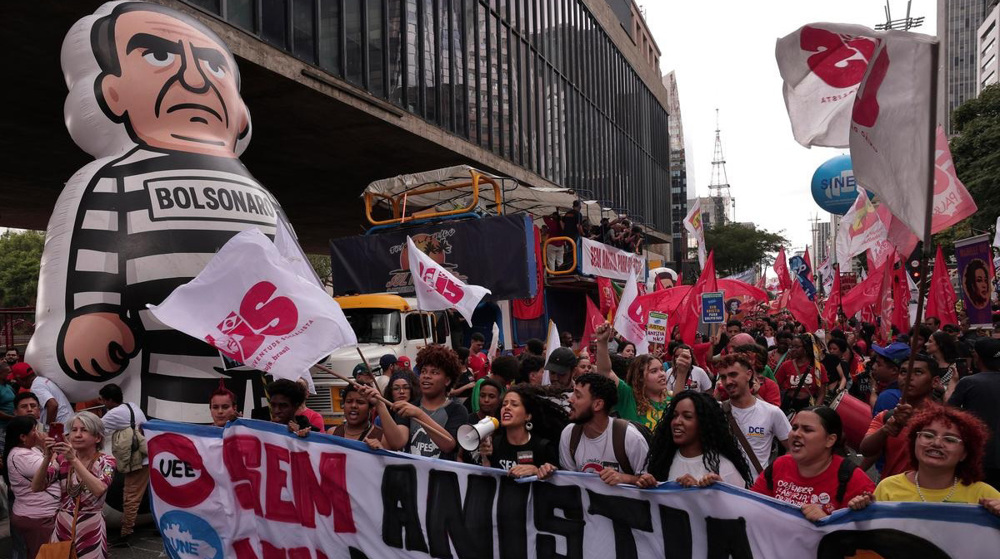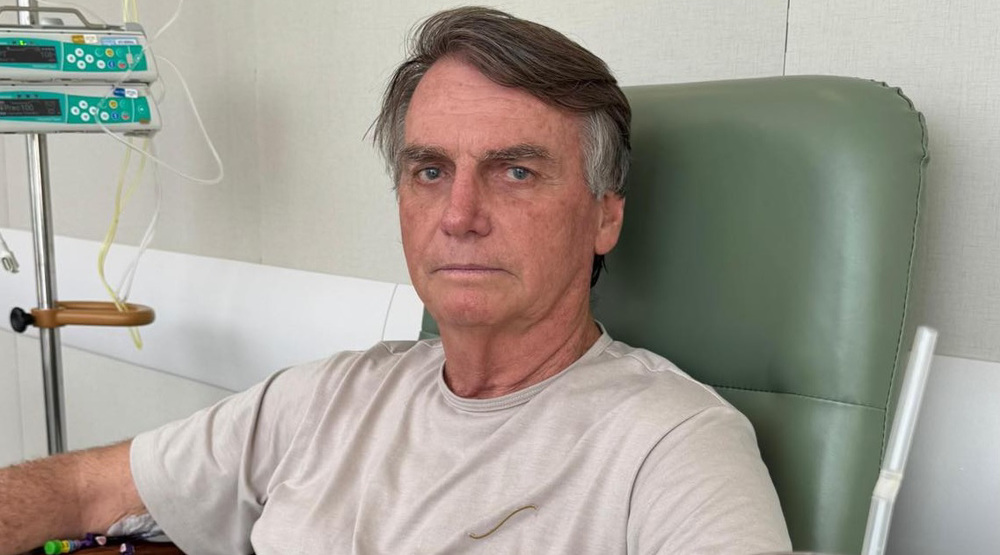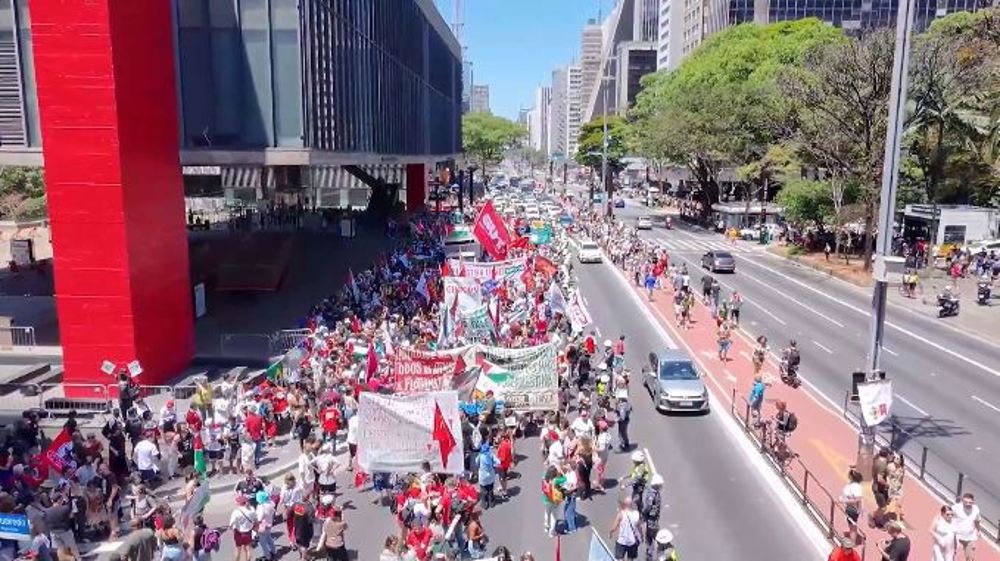Brazilians gear up to stage nationwide anti-government demos
Brazilians are set to hold massive anti-government protests across the country to demand President Dilma Rousseff’s resignation over a graft scandal as well as what they call her mishandling of the economy.
Organizers said more than a million people are estimated to take part in Sunday’s demonstrations in some 400 Brazilian cities.
Bonifacio de Andrada, a deputy from the opposition Brazilian Social Democratic Party, said protesters will pour onto the streets “to demand a change of government.”
The largest event is expected to take place in Sao Paulo, the country’s financial capital and main opposition stronghold.
Late Saturday, Rousseff called on the demonstrators to avoid violence, adding, “I think all people have a right to be on the streets. However, no one has a right to be violent. No one.”
The turnout in Sunday’s nationwide rallies is expected to be decisive for the legislators debating whether to support the Brazilian president or throw their weight behind an opposition-sponsored impeachment drive against her.
Paulo Sotero, director of the Brazil Institute of the Woodrow Wilson International Center for Scholars, said, “If the protests are massive, they will increase pressure on the government and make impeachment more likely.”
In recent months, the Brazilian president has come under pressure over a corruption investigation, centered on the state-controlled oil company Petrobras.

The inquiry has implicated several business leaders and politicians close to the government, including Luiz Inacio Lula da Silva, Rousseff’s predecessor.
The Brazilian president is also accused of manipulating government accounts to illegally boost public spending during her 2014 re-election campaign.
On Saturday, the Brazilian Democratic Movement Party, Rousseff’s crucial partner in the coalition government, indicated that it could pull out in 30 days.
Last March, the biggest anti-government protest saw an estimated 1.7 million people across Brazil, with a million in Sao Paulo alone.
US bears full responsibility for consequences of any fresh aggression against Iran: FM
VIDEO | Sudan’s healthcare system nears collapse amid conflict
VIDEO | Gazans struggle to survive as they welcome New Year
VIDEO | Saudi-UAE rift over Yemen
VIDEO | Saudi airstrikes target UAE-backed forces at Yemen's Mukalla Port
Iran does not fear war; but ‘narrow window of opportunity’ for dialogue remains open, FM says
Iran says $2bn of frozen assets released by neighboring country
Somalia erupts in massive protests over Israel's recognition of Somaliland















 This makes it easy to access the Press TV website
This makes it easy to access the Press TV website